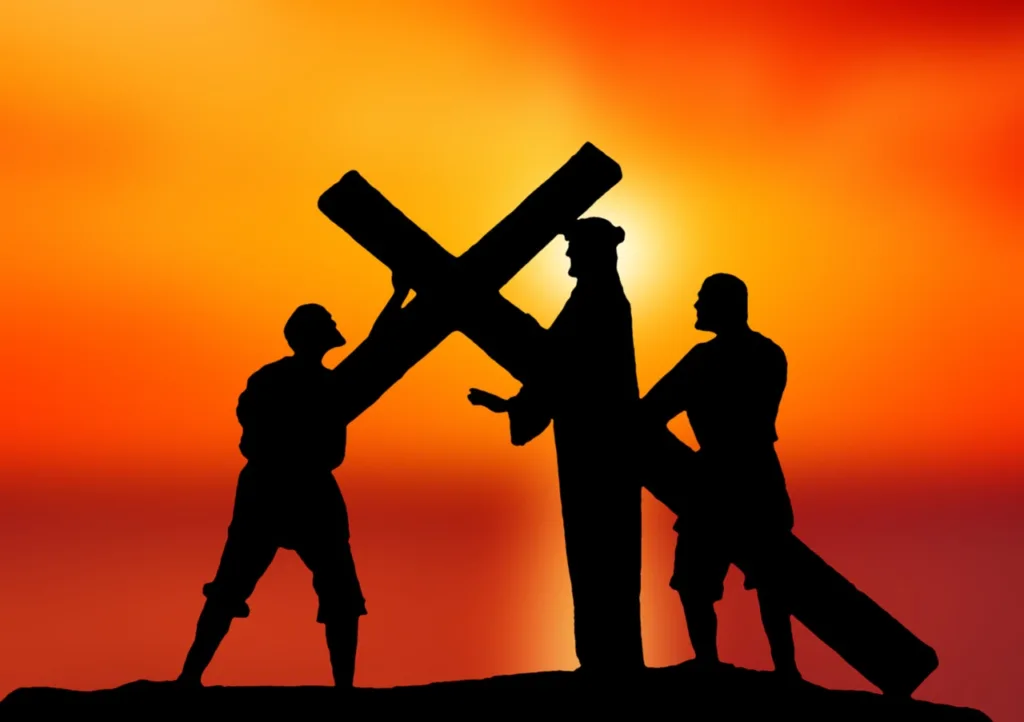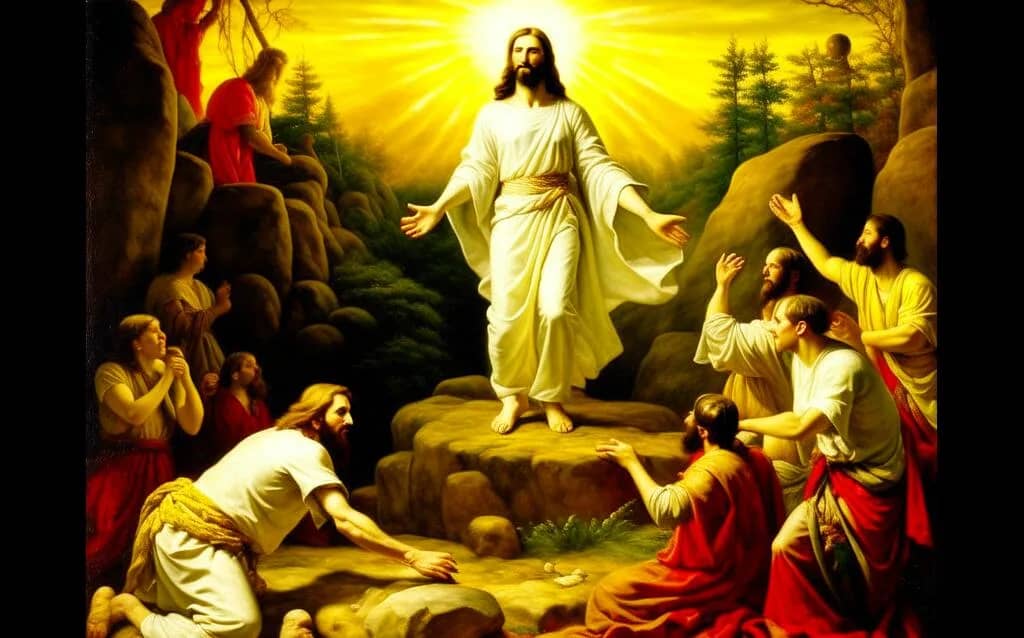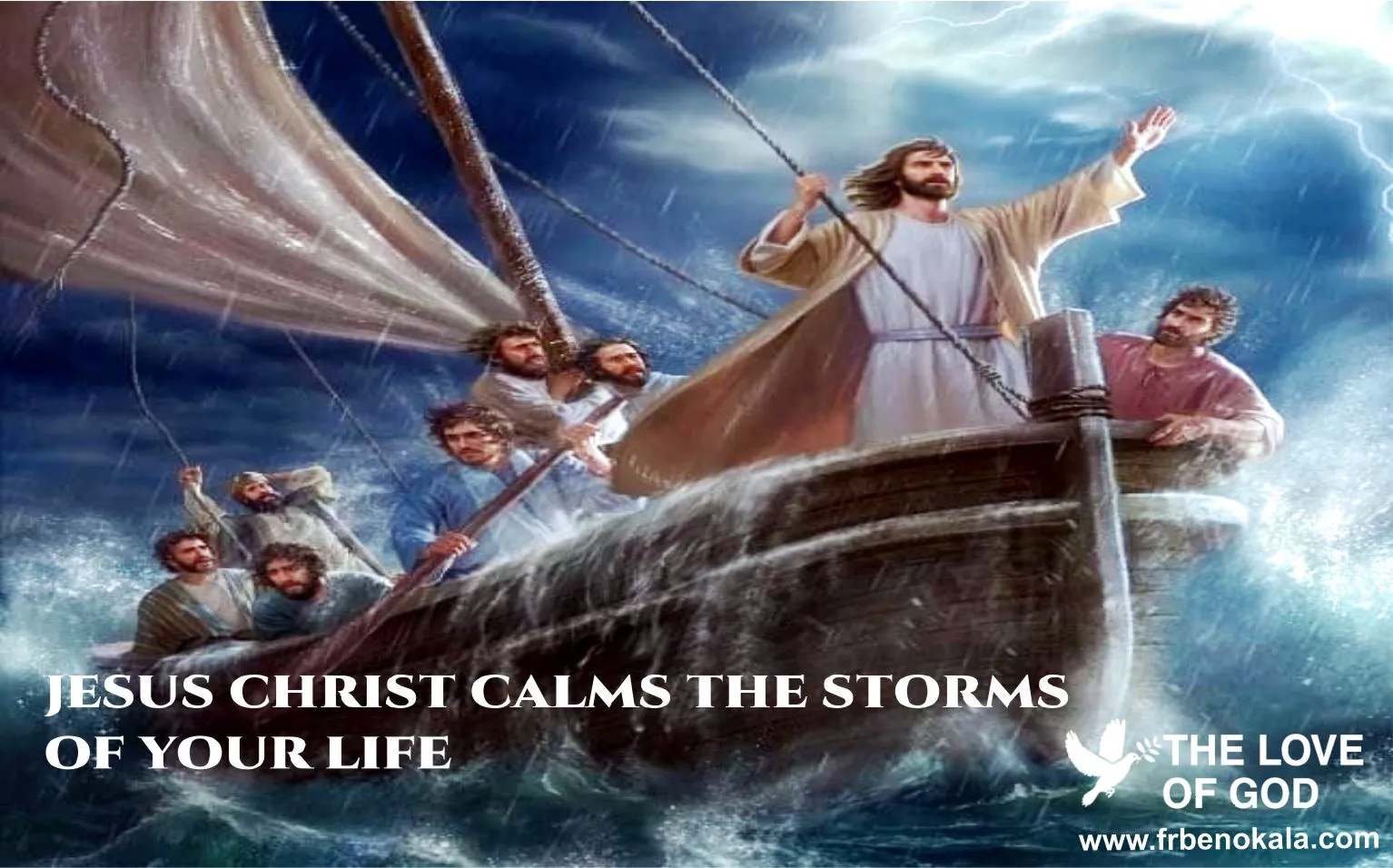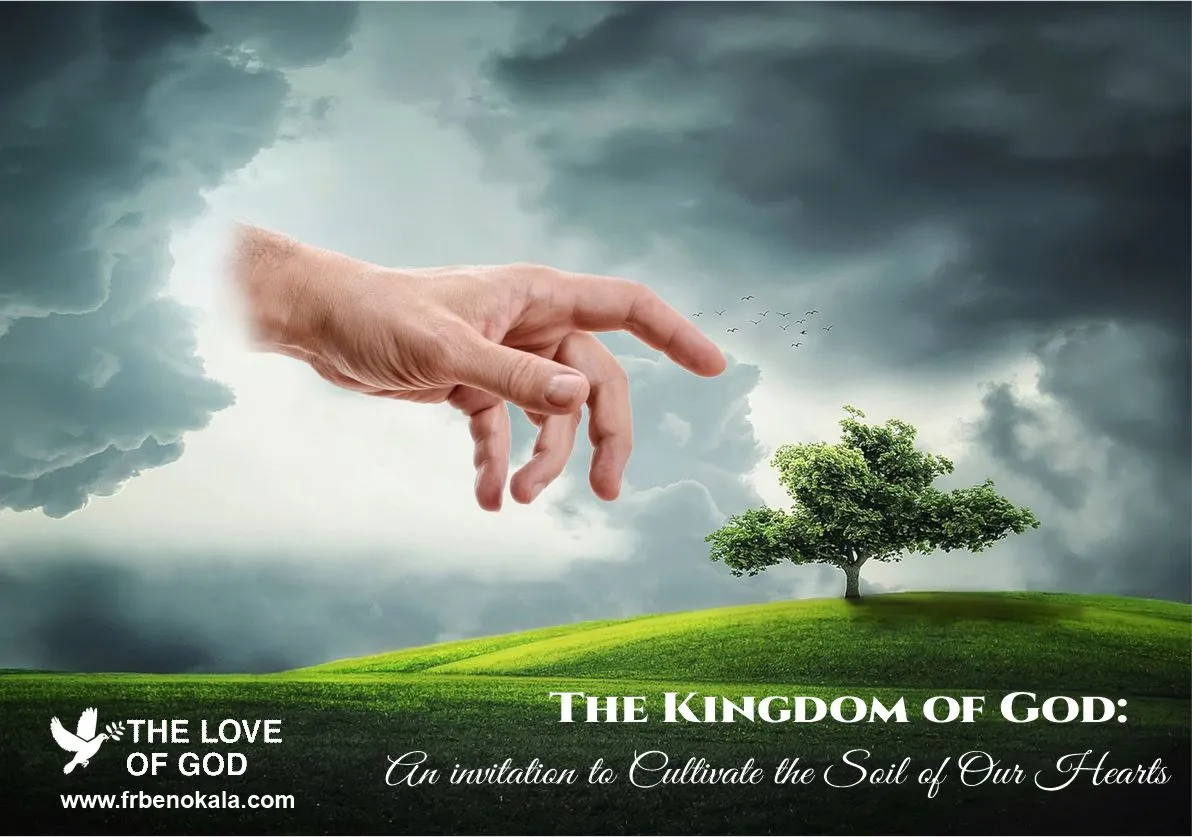As we approach the Easter celebration, Christians all over the world commemorate and reflect on the Passion of Jesus Christ. The story of His betrayal, trial, and ultimately death on the cross has been the subject of countless sermons, songs, and works of art throughout the centuries. It is a story that continues to capture the attention and hearts of millions of people today.
Moreover, it is considered the most significant event in Christian theology because it marks the ultimate sacrifice of Jesus Christ for the redemption of humanity. But the question is, Why is the Passion of Jesus Christ so powerful? What does it mean for our faith and our lives? In this reflection, we will explore the meaning, theological significance, and relevance of the Passion and Death of Jesus Christ to humanity.
THE MEANING OF THE PASSION OF JESUS CHRIST
The Passion of Jesus Christ refers to the events leading up to His suffering, crucifixion, and death, including His burial and resurrection, as recorded in the Scriptures, especially the New Testament Gospels of Matthew, Mark, Luke, and John. It begins with Holy Week: Palm Sunday, Holy Thursday, Good Friday, Holy Saturday, and Easter Sunday. Hence, it is a symbol of love, sacrifice, and hope for all Christians.
For Christians, the Passion of Jesus Christ is significant because it is believed that through His death and glorious resurrection, He conquered death and opened the way for believers to have eternal life (Colossians 2:15). It also serves as a reminder of Jesus’ message of love and forgiveness and His call to live a life of service to others (John 15:12-16; 13:4-17).
THEOLOGICAL SIGNIFICANCE OF THE PASSION OF JESUS CHRIST

The Passion of Jesus Christ is of great theological significance to Christians around the world. This is because it represents the ultimate sacrifice that Christ made on the cross for the salvation of humanity. Below are some of the theological significance of the Passion of Jesus Christ:
1. Atonement for Human Sins: The Passion of Jesus Christ is a means of atonement for the sins of humanity. As the scripture says, sin has separated us from God. The only way to reconcile with God is through the shedding of blood. Through His Passion, Christ offered Himself as the perfect sacrifice for sin, taking upon Himself the penalty for our sins (Hebrews 9:11-28).
2. Forgiveness and Redemption: The Passion of Jesus Christ also represents God’s forgiveness and redemption for humanity. As the scripture says, God forgives our sins when we confess them and ask for His mercy. Through the Passion of Christ, God demonstrated His love for us by forgiving our sins and thus redeeming us from the power of darkness, sin, and death (1 John 1:8-10; Colossians 1:13-14).
MORE THEOLOGICAL SIGNIFICANCE OF THE PASSION OF JESUS CHRIST
3. Suffering and Humanity: The Passion of Jesus Christ also helps us understand suffering and its significance to humanity. Jesus suffered pain, humiliation, and even death on the Cross. Certainly, His suffering shows us that God knows and understands our pain and suffering and that He is with us in our times of need (Romans 8:31–37; 2 Corinthians 1:4).
4. Victory Over Evil: The Passion of Jesus Christ also represents victory over evil. Through His death and resurrection, Christ defeated sin, death, and the devil and opened the way for humanity to have eternal life (2 Timothy 1:10). Obviously, this is the climax of our celebration during Holy Week, especially during the Sacred Triduum.
THE EVENTS OF THE SACRED TRIDUUM
The Sacred Triduum is one of the most significant and holy periods in the Church. It encompasses the three most solemn moments in the life of Jesus Christ. These moments are filled with meaningful and poignant ceremonies that are steeped in tradition and liturgy. Moreover, the Sacred Triduum begins on Holy Thursday, continues through Good Friday. It culminates with the celebration of the Easter Vigil on Holy Saturday, and ends on Easter Sunday.
Holy Thursday:

This is also commonly known as Maundy Thursday, a name that is derived from the Latin word mandatum, meaning commandment. It refers to Jesus’ commandment to His disciples to love and serve one another (John 13:34-35). Also on this day, Jesus Christ humbly washed the feet of His disciples. He instituted the Holy Priesthood and the Holy Eucharist as sacramental expressions of His Paschal Mystery.
Good Friday:

This is also known as Holy Friday because, on this day, Jesus Christ was crucified on the cross, sacrificing Himself for the sins of humanity. He underwent severe torture, suffering, and humiliation. Besides, the cross had been, in the past, a thing of humiliation, shame, and mockery. However, Jesus Christ transformed the cross into a symbol of God’s love for humanity and victory over sin and death (Romans 5:8).
On His way to Calvary, Jesus Christ experienced all that stands against human freedom, the fullness of life, and salvation. In other words, those precarious situations, which frightened humanity and kept her under bondage: rejection, humiliation, mockery, condemnation, abandonment, shame, fear, death, etc. Nevertheless, Christ triumphed over them all.
When Jesus Christ died on the Cross, His side was pierced with a lance, and blood and water gushed out. Significantly, just as Eve, the wife (spouse) of Adam, was formed through Adam’s side (rib) while he was sleeping. So also the Church, the spouse of Christ, was formed (born) through Christ’s side (blood and water) while He was in deep sleep.
Holy Saturday:

On this day, a great silence engulfed the whole world because Jesus Christ sleeps in the flesh and goes to battle in the underworld, holding His victorious weapon, His Cross, so as to free and raise up those who had been sleeping in darkness for ages (1 Peter 3:19-20; 4:6).
This is the length to which God was willing to go to save His people from sin and death. Of course, Jesus Christ went this far and victoriously salvaged humanity from its precarious situation. Surely, this victory gives Christians the hope of the resurrection and the assurance of eternal life (Hebrews 2:14; 1 Peter 2:24).
Easter Sunday:

This is also called Pascha, or Resurrection Sunday. It is a special day that Christians commemorate the resurrection of Jesus Christ from the dead by the Power of the Holy Spirit and His victory over sin and death (1 Corinthians 15:56-57). For the true Lamb has taken away the sins of the world. By dying, He has destroyed our death, and by rising, He has restored our life.
As the chirping birds welcome the first rays of sunlight, Easter Sunday gloriously arrives with new beginnings, hope, freedom, and renewal. It is a celebration of the ultimate sacrifice of love that changed the world forever (Matthew 28:5-6).
RELEVANCE OF THE PASSION OF JESUS CHRIST TO HUMANITY
The Passion of Jesus Christ, which refers to His suffering, crucifixion, and death, has significant relevance to our lives as Christians. Here are a few ways:
Forgiveness: Through His passion, Jesus Christ offered forgiveness to those who persecuted Him. This teaches us the importance of forgiving others, even when they have wronged us. As Christians, we are called to love our enemies and pray for those who persecute us (Matthew 5:44).
Salvation: Jesus’ sacrifice on the cross made it possible for us to be reconciled with God and receive salvation. By accepting His sacrifice, we are forgiven of our sins and receive eternal life. This teaches us the importance of having faith and trust in Jesus Christ and following His teachings.
Compassion: The Passion of Jesus Christ teaches us about compassion and empathy for those who are suffering. As Christians, we are called to show compassion to people whose income is below the poverty threshold, the sick, and the marginalized, just as Jesus did.
Endurance: Jesus’ passion also teaches us about endurance in the face of suffering. As we face trials and difficulties in our own lives, we can draw strength from Jesus’ example of perseverance and faithfulness.
CONCLUSION
The Passion of Jesus Christ is of great theological significance to Christians around the world. It represents God’s love for humanity, atonement for sin, forgiveness, and redemption. Also, the significance of suffering, and victory over evil forever. The Passion of Jesus Christ reminds us of the depth of God’s love for us and His desire for us to have eternal life with Him.

Furthermore, the Passion of Jesus Christ also teaches us about love, humility, service, forgiveness, faith, trust in God, compassion, and endurance. This serves as a powerful reminder of God’s grace and mercy. As we prepare to embrace the joy and wonder of Easter Sunday, let us explore the essence of this beautiful festival. Then dive into profound reflections that inspire us to lead a life filled with love, kindness, and compassion (Colossians 3:1-4).
PRAYER:
May the Power of the Passion, Death, and Resurrection of our Lord Jesus Christ bring you total transformation and restoration. May the blessings of God be upon you and your family. In the name of the Father, and of the Son, and of the Holy Spirit, Amen.
Peace of Christ be with you…
Rev. Fr. Benjamin Okala, C.S.Sp.




